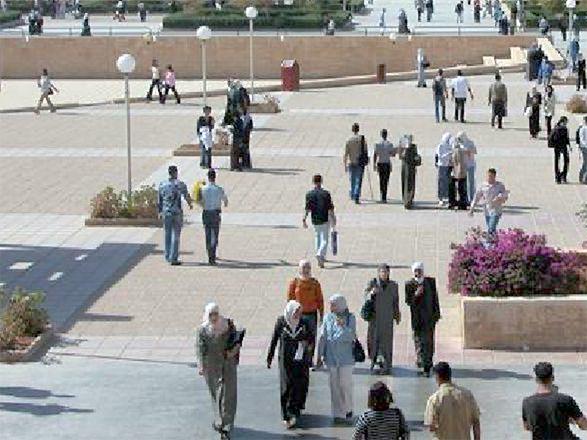You are here
Sound economic measures a panacea for unemployment problem — experts
By Sarah Abu Zaid - Dec 14,2020 - Last updated at Dec 14,2020

Unemployment rate among university graduates stood at 27.7 per cent, according to to recent figures by the Department of Statistics (File photo)
By
AMMAN — Reducing production costs, providing well-targeted investment incentives and improving working conditions are imperative in reining in ballooning unemployment rates among Jordanian men and women, observed economists and experts.
In interviews with The Jordan Times, they called for lowering taxes to encourage businesses and investments, reducing social security subscriptions, and bridging the gap between academia and the industry to help reduce the “unprecedented unemployment rate”.
According to recent figures by the Department of Statistics (DoS), Jordan’s unemployment rate rose to 23.9 per cent in the third quarter of 2020 from 19.1 in the same quarter of 2019. Jordan’s unemployment rate reached 23 per cent in the second quarter of 2020 and 19 per cent at the end of 2019.
Unemployment rate in the third quarter of this year reached 21.2 per cent among men compared with 33.6 per cent among women, according to the DoS figures. Unemployment rate among university graduates stood at 27.7 per cent, the data showed.
“There is a need to act and take prompt measures based on the current situation. To address the issue, it is very important to offer incentives to attract investments and support business owners and startups,” economist Wajdi Makhamreh told The Jordan Times.
“There is a need to assess the depth of the problem and discuss it with stakeholders to come up with short- and medium-term solutions,” Makhamreh said.
“The pandemic has contributed to the decline of women’s participation in the labour force because they’ve been forced to take the role of educators for their kids due to the adoption of distance learning,” he added.
Makhamreh also highlighted the need to create investment funds to support women.
“To support the overall business environment, there must be some governmental incentives for reducing energy costs, supporting small- and medium-sized enterprises for youth and women,” he noted.
The COVID-19 crisis has worsened the situation not only for businesses but also for women.
“The unemployment rate is very high for educated and married women who had to leave their jobs due to the lack of proper public transportation and commensurate salaries,” Randa Naffa, a member of the advocacy organisation, SADAQA Core Team, told The Jordan Times.
“There is a need to provide proper guidance on professions and skills that are in demand in the job market. Education must not solely be theoretical but also practical, focusing on skills desired by businesses,” Naffa added.
“One of the reasons of unemployment is rooted in the concept of the ‘culture of shame’,” she added.
Naffa was referring to the prevalent trend in a wide section of Jordanian society where job seekers refuse to accept employment opportunities they deem of “lower status”.
Increasing unemployment is not only confined to Jordan.
According to a report by the Economic and Social Commission for Western Asia (ESCWA) titled “The Impact of COVID-19 on Gender Equality in the Arab Region”, the COVID-19 pandemic is expected to result in the loss of 1.7 million jobs in the Arab region, including approximately 700,000 jobs occupied by women.
Female participation in the labour market is already weak in the Arab world, with unemployment rate among women reaching 19 per cent in 2019, versus 8 per cent for men, according to the ESCWA report.
The COVID-19 pandemic is affecting several economic sectors in the Arab region, notably the manufacturing and service industries. Given that a large proportion of women work in these two sectors, women are most affected by the repercussions of the pandemic. They may either lose their jobs, or be forced to accept unfair work conditions, according to the ESCWA report.
“We need to maximise the benefit of the Free Trade Agreement [FTA] with the US to help reduce the high rate of unemployment, economist Mazen Marji told the Jordan Times.
The FTA was signed on October 24, 2000. It was US’ third free trade agreement, and the first ever with an Arab State.
“Another solution to help address high unemployment rate would be developing vocational training to help those who have not completed their higher education and equip them with the skills needed in several sectors,” he said.
Supporting local and international investments and providing well-studied economic incentives will also increase job opportunities for Jordanians, Marji said.
For Marah, a 22-year-old pharmacy graduate, she prefers to work in a job related to her specialty.
“I wouldn’t mind working anything but I prefer doing something related to my field,” Marah told The Jordan Times on Monday.
“In order to land a job, I would try to gain more experience, maybe taking extra training courses,” she said.
Related Articles
AMMAN — Economist on Sunday warned that if the government fails to adopt measures that will boost the economy and encourage investment in Jo
AMMAN — The unemployment rate in Jordan declined during the second quarter of 2022, amounting to 22.6 per cent, according to the Department
AMMAN — Well-planned and well-implemented vocational training can help reduce the unprecedented rise in unemployment rates, observed experts

















